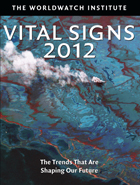3 start with V start with V

In Varieties of State Regulation, Yukyung Yeo explores how, despite China’s increasing integration into the global market, the Chinese central party-state continues to oversee the most strategic sectors of its economy. Since the 1990s, as major state firms were spun off from the ministries that managed them under the central planning system, the nature of the state in governing the economy has been remarkably transformed into that of a regulator.
Based on over 100 interviews conducted with Chinese central and local officials, firms, scholars, journalists, and consultants, the book demonstrates that the form of central state control varies considerably across leading industrial sectors, depending on the dominant mode of state ownership, conception of control, and governing structure. By analyzing and comparing institutional dynamics across various sectors, Yeo explains variations in the pattern of China’s regulation of its economy. She contrasts the regulation of the automobile industry, a relatively decentralized sector, with the highly-centralized telecommunications industry, and demonstrates how China’s central party-state maintains regulatory authority over key local state-owned enterprises. Placing these findings in historical and comparative contexts, the book presents the evolution and current practice of state regulation in China and examines its compatibility with other contemporary government practices.

A robust historical case study that demonstrates how village development became central to the rhetoric and practice of statecraft in rural Ghana.
Combining oral histories with decades of archival material, Village Work formulates a sweeping history of twentieth-century statecraft that centers on the daily work of rural people, local officials, and family networks, rather than on the national governments and large-scale plans that often dominate development stories. Wiemers shows that developmentalism was not simply created by governments and imposed on the governed; instead, it was jointly constructed through interactions between them.
The book contributes to the historiographies of development and statecraft in Africa and the Global South by
- emphasizing the piecemeal, contingent, and largely improvised ways both development and the state are comprised and experienced
- providing new entry points into longstanding discussions about developmental power and discourse
- unsettling common ideas about how and by whom states are made
- exposing the importance of unpaid labor in mediating relationships between governments and the governed
- showing how state engagement could both exacerbate and disrupt inequities
Despite massive changes in twentieth-century political structures—the imposition and destruction of colonial rule, nationalist plans for pan-African solidarity and modernization, multiple military coups, and the rise of neoliberal austerity policies—unremunerated labor and demonstrations of local leadership have remained central tools by which rural Ghanaians have interacted with the state. Grounding its analysis of statecraft in decades of daily negotiations over budgets and bureaucracy, the book tells the stories of developers who decided how and where projects would be sited, of constituents who performed labor, and of a chief and his large cadre of educated children who met and shaped demands for local leaders. For a variety of actors, invoking “the village” became a convenient way to allocate or attract limited resources, to highlight or downplay struggles over power, and to forge national and international networks.

By taking stock of global consumption, Vital Signs 2012 offers the facts that need to guide our stewardship of the Earth's resources-and some of these facts are shocking. The report covers topics from obesity to ecosystem services, from grain production to nuclear power. Taken as a whole, it paints a picture of skyrocketing population, disappearing forests, and increasing consumption peppered with bright spots like growing investment in high-speed trains and other efficient transportation systems.
Vital Signs 2012 is based on Worldwatch's online project of the same name, which provides up-to-date figures on important global concerns, as well as the Institute's own additional research. The book compiles the most important of these into an accessible, informative resource for policymakers and anyone who wants a realistic look at the state of our planet.
READERS
Browse our collection.
PUBLISHERS
See BiblioVault's publisher services.
STUDENT SERVICES
Files for college accessibility offices.
UChicago Accessibility Resources
home | accessibility | search | about | contact us
BiblioVault ® 2001 - 2024
The University of Chicago Press









